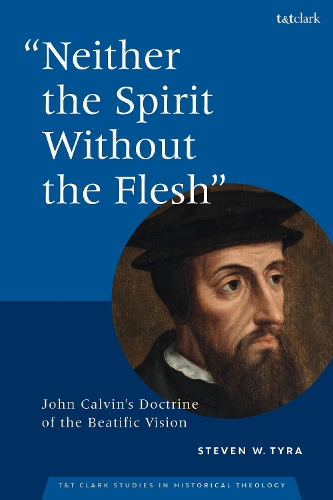
"Neither the Spirit without the Flesh": John Calvin's Doctrine of the Beatific Vision
(Hardback)
Publishing Details
"Neither the Spirit without the Flesh": John Calvin's Doctrine of the Beatific Vision
By (Author) Dr Steven W. Tyra
Bloomsbury Publishing PLC
T.& T.Clark Ltd
22nd February 2024
United Kingdom
Classifications
Professional and Scholarly
Non Fiction
History of religion
Calvinist, Reformed and Presbyterian Churches
Religion: Eschatology
230.42
Physical Properties
Hardback
208
Width 156mm, Height 234mm
Description
This book claims that John Calvin developed Greek doctrines of the interim state of souls, resurrection, and beatific vision through his reading of ancient Christian sources like Irenaeus of Lyons. Greek had been a technical term in western theology since at least the twelfth century to denote heterodox eschatology. Thomas Aquinas had employed it in that sense, and early modern Catholics like Robert Bellarmine and Pierre Coton in turn applied it to Calvin. The book demonstrates that, in this respect at least, Calvins opponents were correct: he was a Greek. However, it questions whether that fact should lead modern theologians to dismiss him as a resource for contemporary reflection. Calvins deep respect for and continuity with early Christian voices may serve as a positive model for theologians today, particularly in the Reformed tradition. By the same token, Reformed thinkers who seek inspiration from medieval scholasticism may find their relationship to Calvin complicated by the case presented here.
Author Bio
Steven W. Tyra serves as the Robert Pool Fellow in Law and Christianity at Emory University School of Law, USA.
